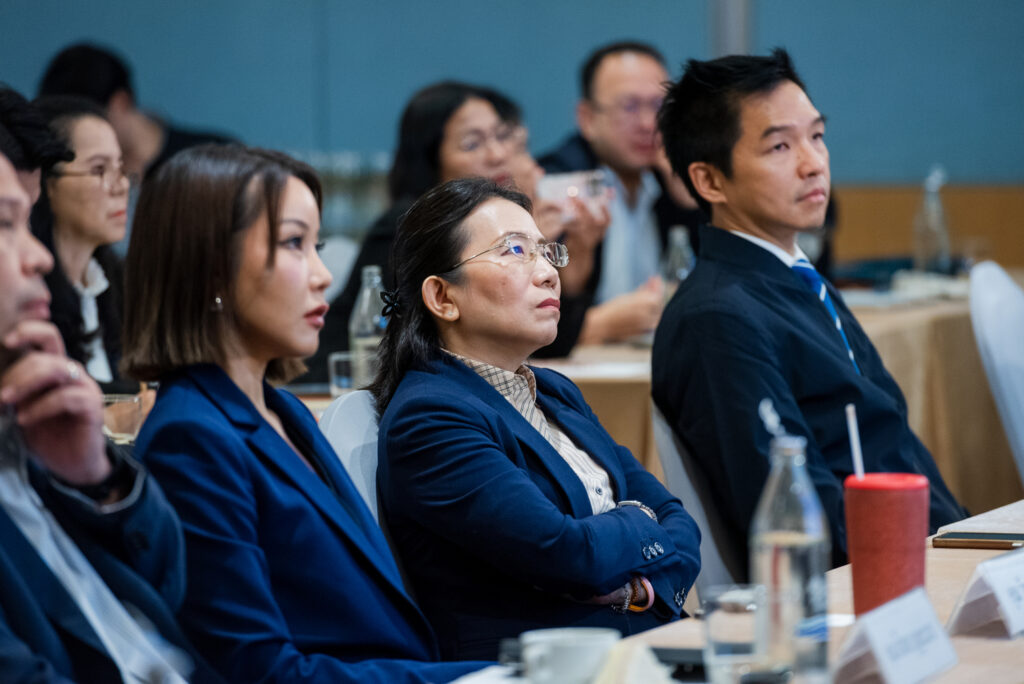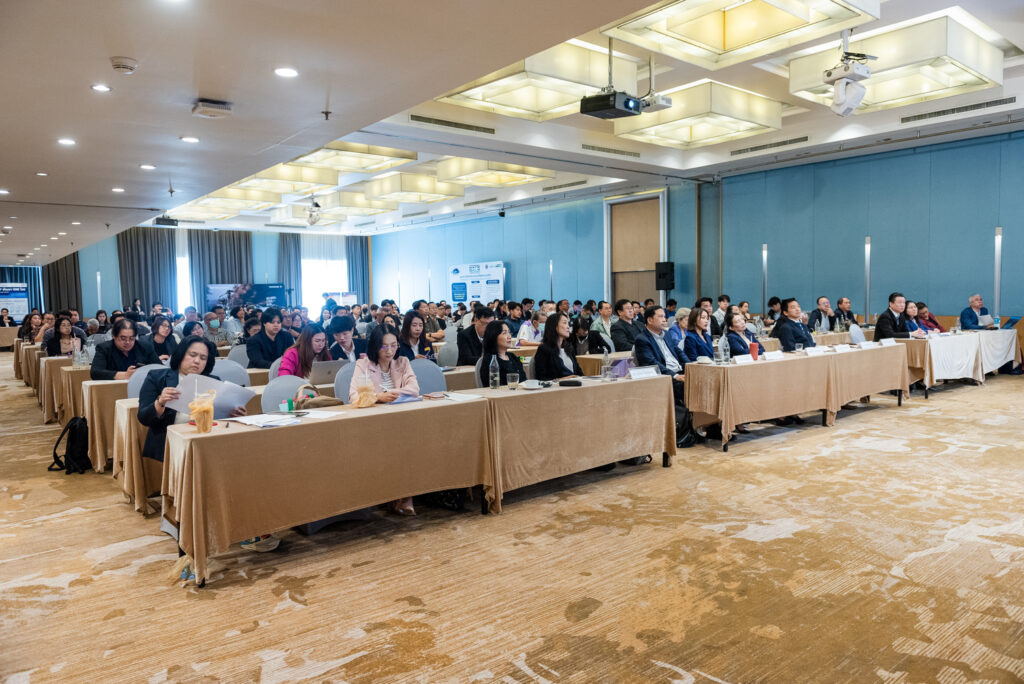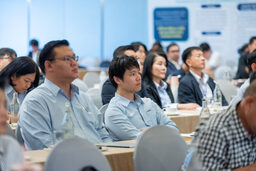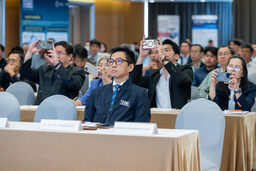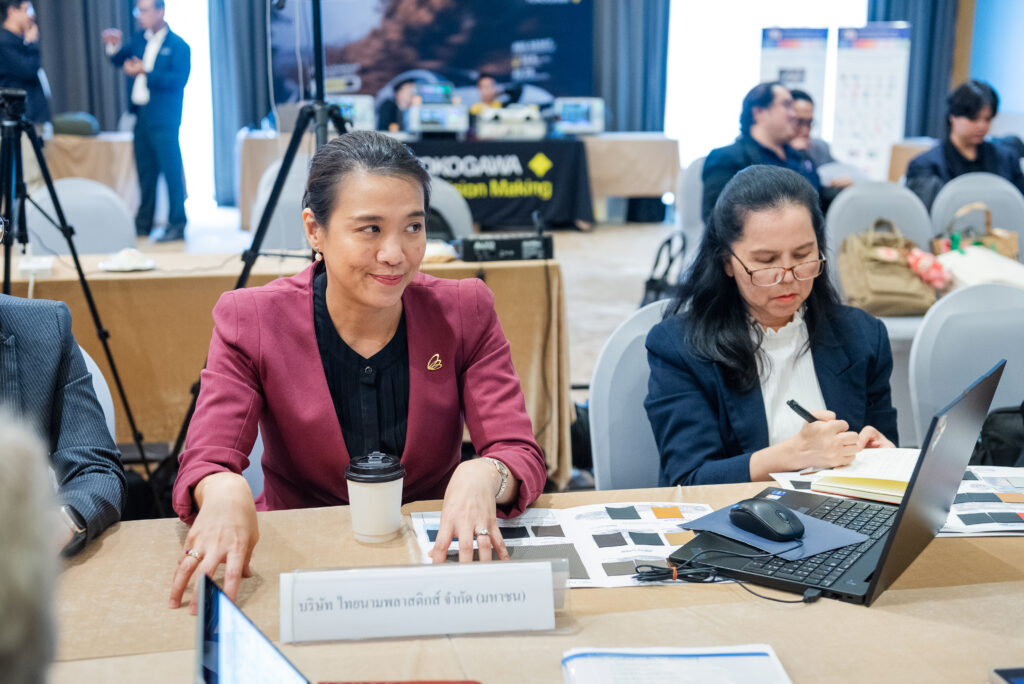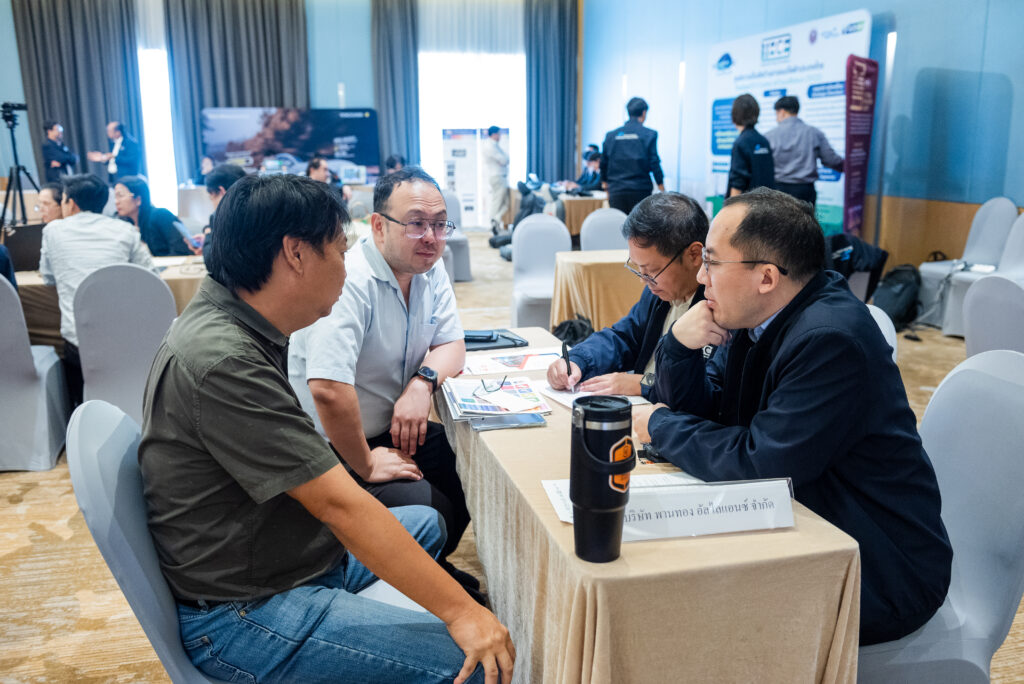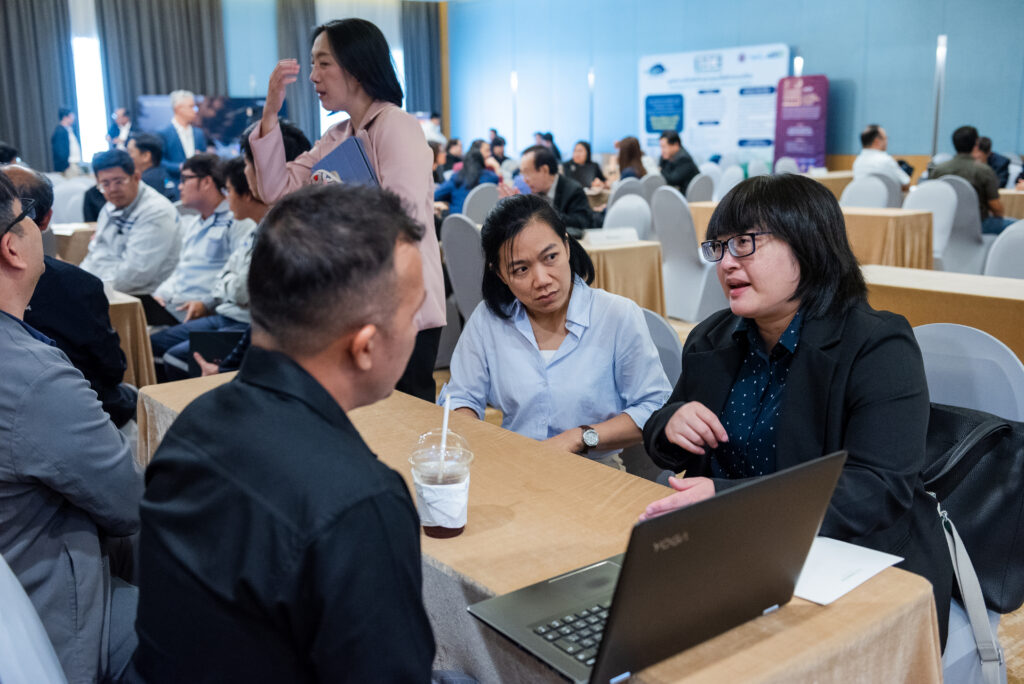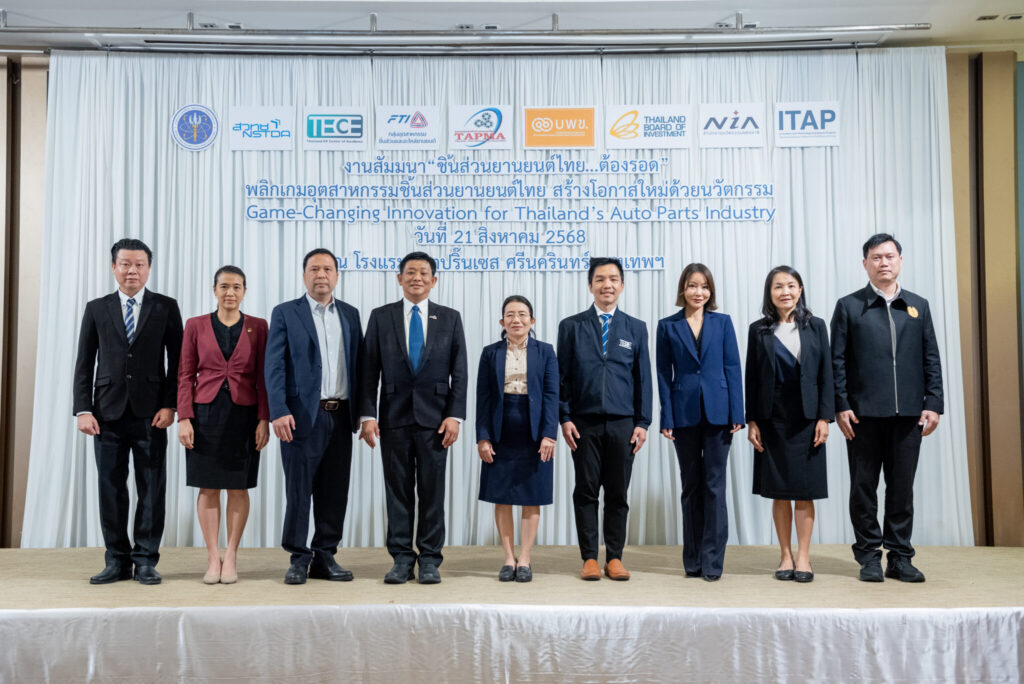
On August 21, 2025, at the Dusit Princess Srinakarin Hotel in Bangkok, the National Science and Technology Development Agency (NSTDA), through its Thailand Center of Excellence for Electric Vehicles (TECE), hosted a seminar titled “Open Innovation for EV Battle: Thai Auto Parts Industry Must Survive.” The event aimed to foster cross-sector collaboration and accelerate innovation to enhance the competitiveness of Thailand’s automotive parts manufacturers as they navigate the transition to the electric vehicle (EV) era.
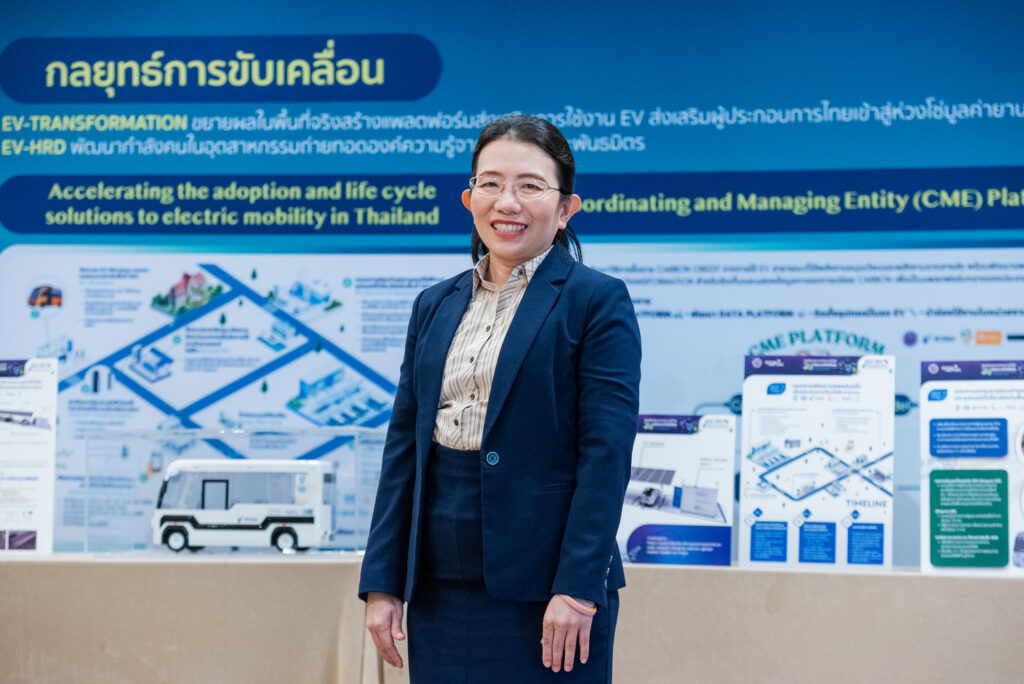
Dr. Sumittra Charojrochkul, Director of the Thailand Center of Excellence for Electric Vehicles (TECE) and the National Energy Technology Center (ENTEC) under NSTDA, delivered the opening remarks, emphasizing that the global shift toward electric vehicles is a transformative trend with significant implications for Thailand’s auto parts industry. She highlighted the seminar as a strategic platform to foster collaboration among entrepreneurs, researchers, government agencies, and funding bodies — aimed at identifying new pathways to strengthen the resilience and competitiveness of Thai manufacturers. As a key supporting agency, TECE plays a vital role in bridging entrepreneurs with cutting-edge technologies and innovations. Dr. Sumittra also expressed her hope that the event would mark the beginning of a robust collaborative network, paving the way for initiatives that turn industry challenges into new opportunities for growth.
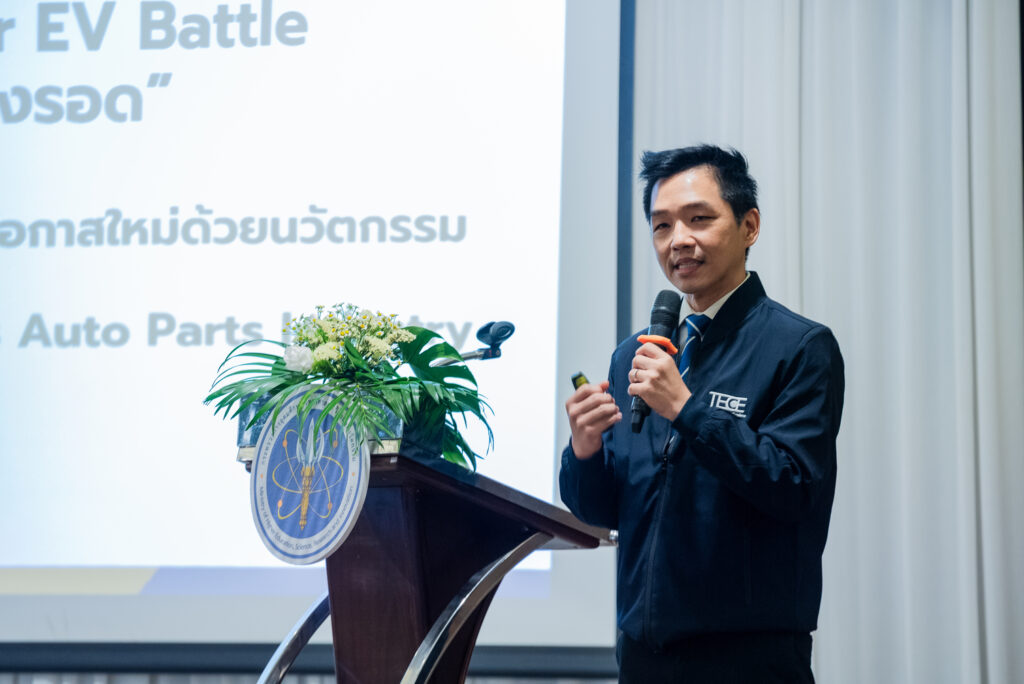
Dr. Sarawut Lerspalungsanti, Deputy Director of the Thailand Center of Excellence for Electric Vehicles (TECE) and Deputy Director of the National Metal and Materials Technology Center (MTEC), NSTDA, underscored that the transition to the EV era presents a formidable challenge for auto parts manufacturers. He stressed the need for a unified effort across government, private sector, research institutions, funding agencies, and financial organizations to craft strategies that serve as a “tailwind” — propelling Thai entrepreneurs toward sustainable growth. The Federation of Thai Industries (FTI) has outlined two key transition targets: ZEV 30@30, which aims for zero emission vehicle and related parts to account for 30% of total production by 2030; and Future ICE 70@30, which seeks to retain 70% of internal combustion engine (ICE) and hybrid vehicle production in the same timeframe — ensuring Thailand’s continued global competitiveness. TECE-NSTDA actively supports these goals by delivering technical expertise and innovation, focusing on cost-effective manufacturing solutions and facilitating access to domestic incentives and funding to bolster the nation’s industrial strength.
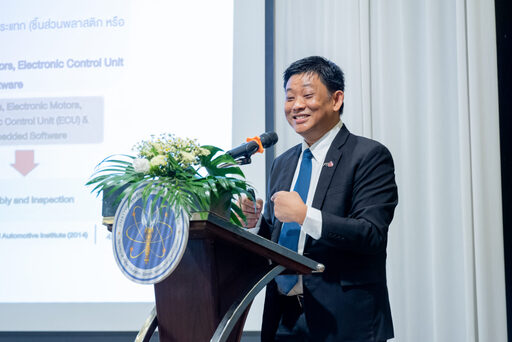 | 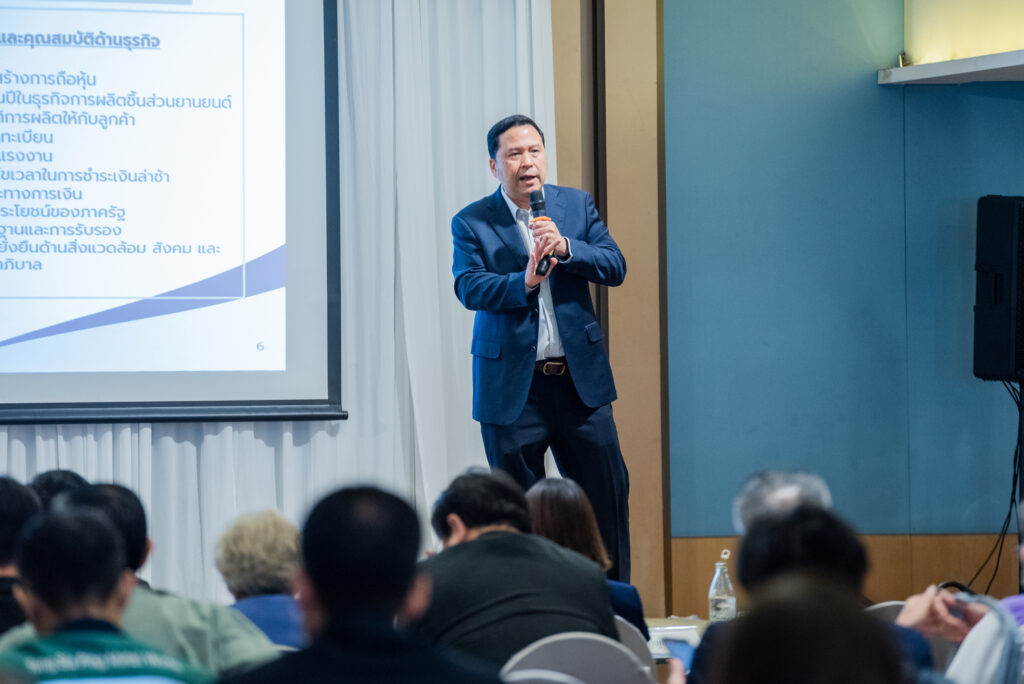 | 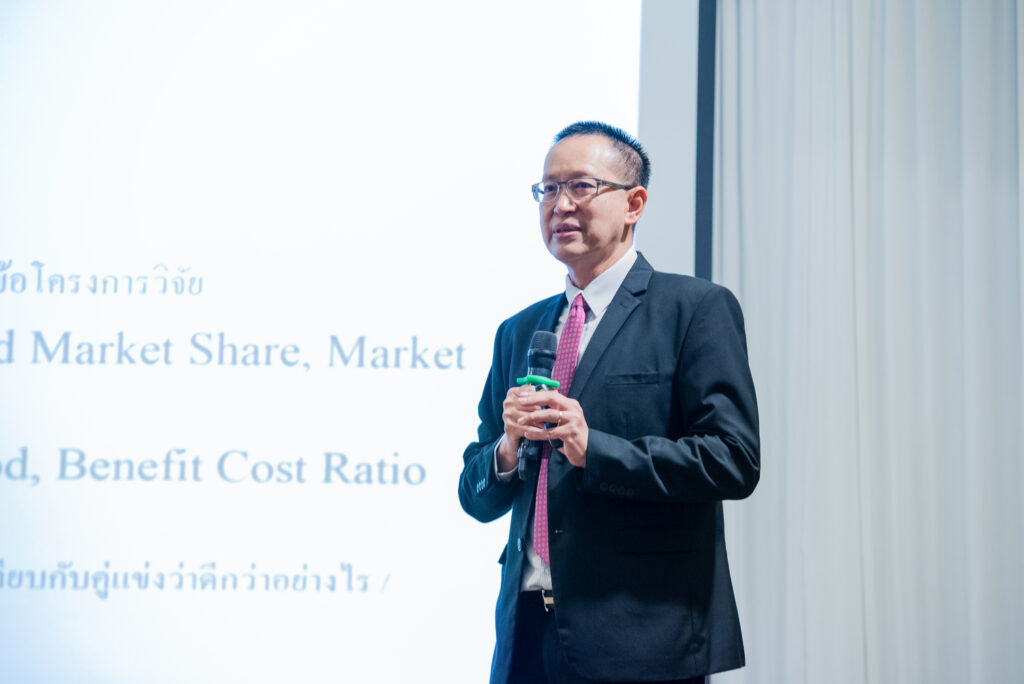 |
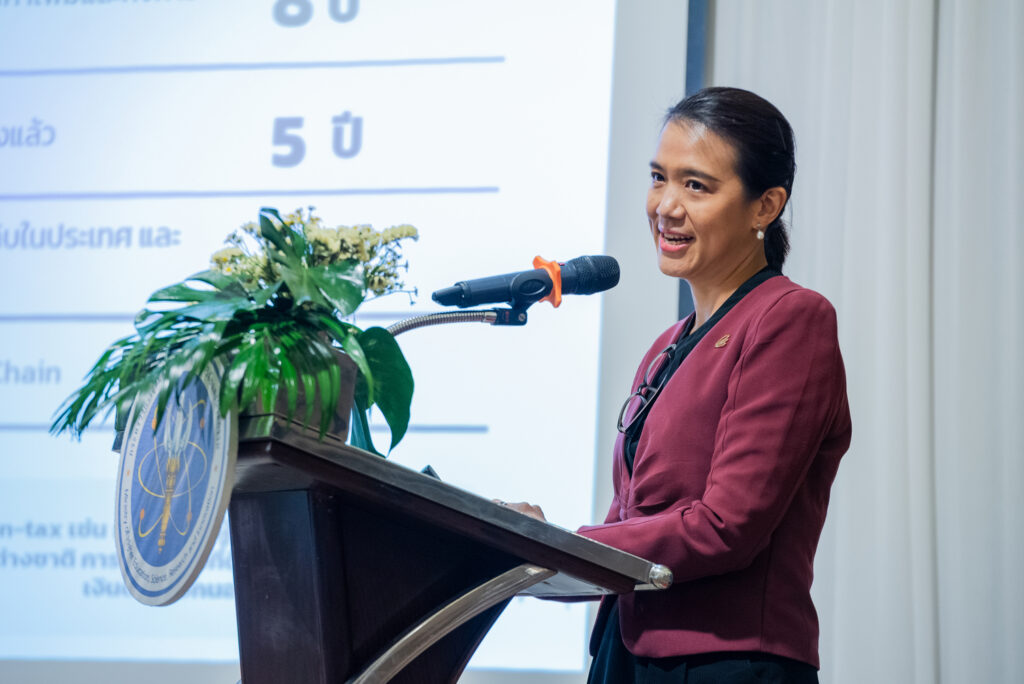 | 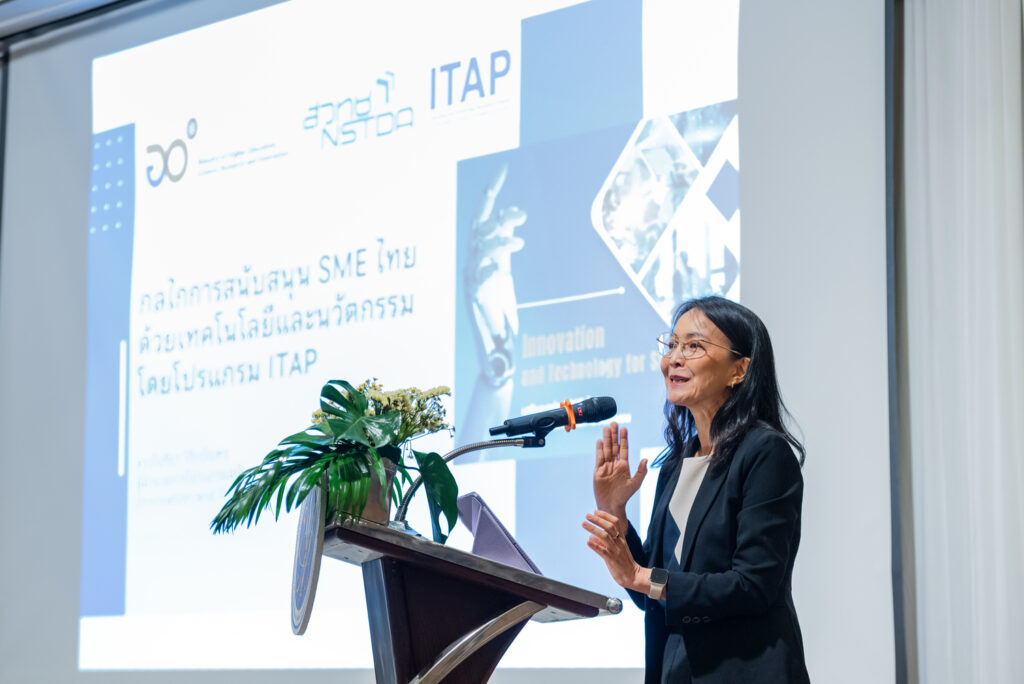 | 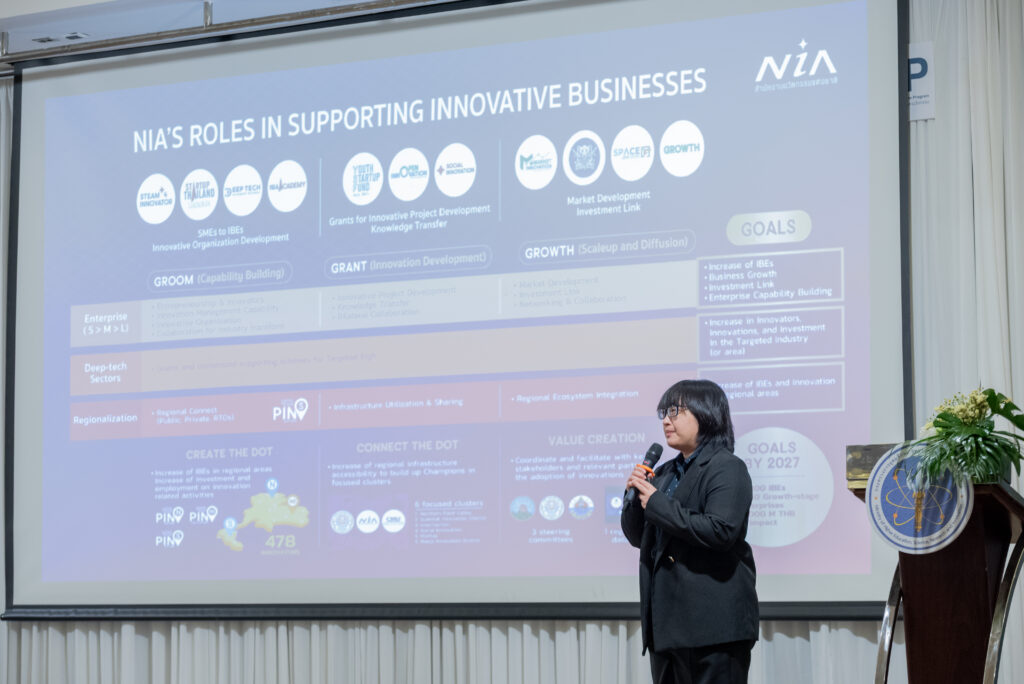 |
The event convened over 150 participants from more than 50 organizations, including executives from over 30 leading automotive parts companies. Attendees engaged in insightful sessions led by distinguished speakers such as:
- Mr. Supot Sukpisan, Chairman of the Automotive Parts and Components Industry Group, the Federation of Thai Industries (FTI), and Deputy Secretary-General of the Thai Auto-Parts Manufacturers Association (TAPMA), presented FTI’s mission and strategic adaptation plans aimed at enhancing the competitiveness of Thailand’s automotive parts industry.
- Mr. Treepol Boonyaman, Deputy Director of the Thailand Automotive Institute, delivered a talk titled “Gate of Opportunity or Wall of Challenge”, exploring the demand for automotive parts among Chinese car manufacturers operating in Thailand.
- Mr. Vachara Leegomonchai, Chief Executive Officer of CLP Engineering Co., Ltd., and Mr. Susayam Anantasainon, Director of Sales and Marketing at Thai Nam Plastic Public Co., Ltd., presented compelling case studies showcasing how automotive companies have successfully transformed crises into opportunities for growth and innovation.
- Ms. Yordkamon Suthirapojn, Senior Investment Promotion Officer, Division 2, Thailand Board of Investment (BOI), outlined key investment promotion measures for the automotive parts industry, including initiatives that encourage the adoption of locally manufactured components.
- Assoc. Prof. Dr. Pathomtat Chiradeja, Chairman of the Subcommittee on Programs in Telecommunications, Logistics, Energy, Chemistry, Biobased Materials, and Circular Economy under the Program Management Unit for Competitiveness Enhancement (PMU-C), provided information on R&D funding opportunities for the next-generation automotive industry.
- Ms. Pitcharee Keeratithakul, Senior Innovation Development Officer, National Innovation Agency (NIA), shared details on funding programs supporting EV-related innovation businesses for entrepreneurs.
- Dr. Nantiya Viriyabanthorn, Director of the Innovation and Technology Assistance Program (ITAP), NSTDA, shared strategies for empowering Thai SMEs through targeted support in technology and innovation.
In addition, participants engaged in several key activities, including:
☑️ Technology updates showcasing advanced automotive innovations from NSTDA, ready for commercial deployment.
☑️ The TechCare Hub Zone, themed “Crack the Code: Aligning Companies – Researchers – Funding Agencies”, is designed to facilitate direct business and technology matching.
This seminar marked a pivotal milestone in fostering cross-sector collaboration and laid the groundwork for empowering Thai automotive parts manufacturers to boost their competitiveness in the electric vehicle (EV) era.
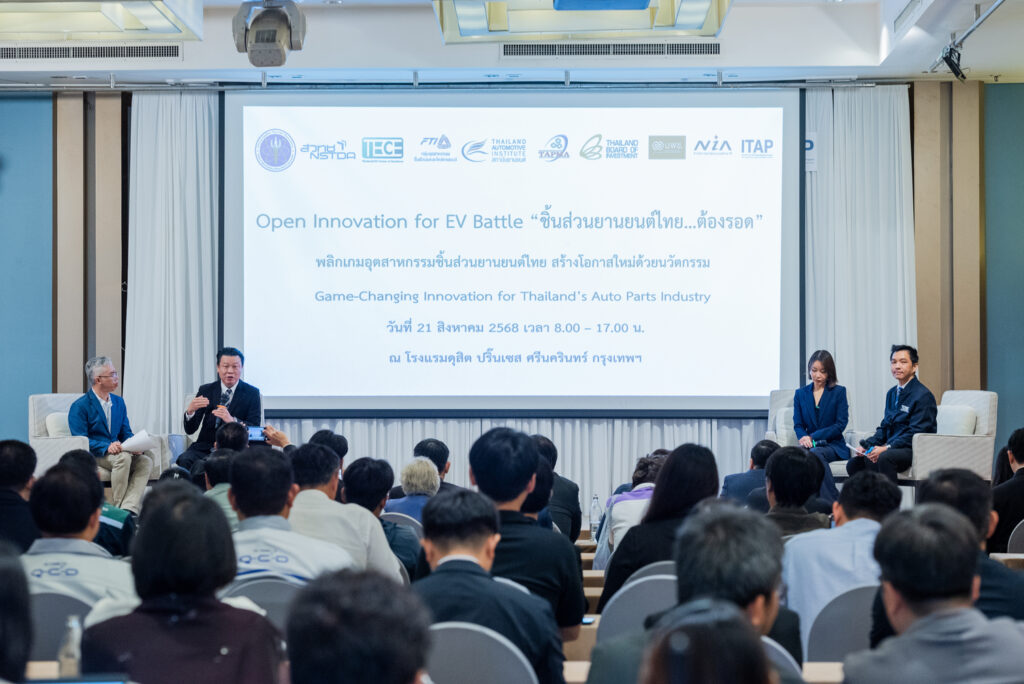
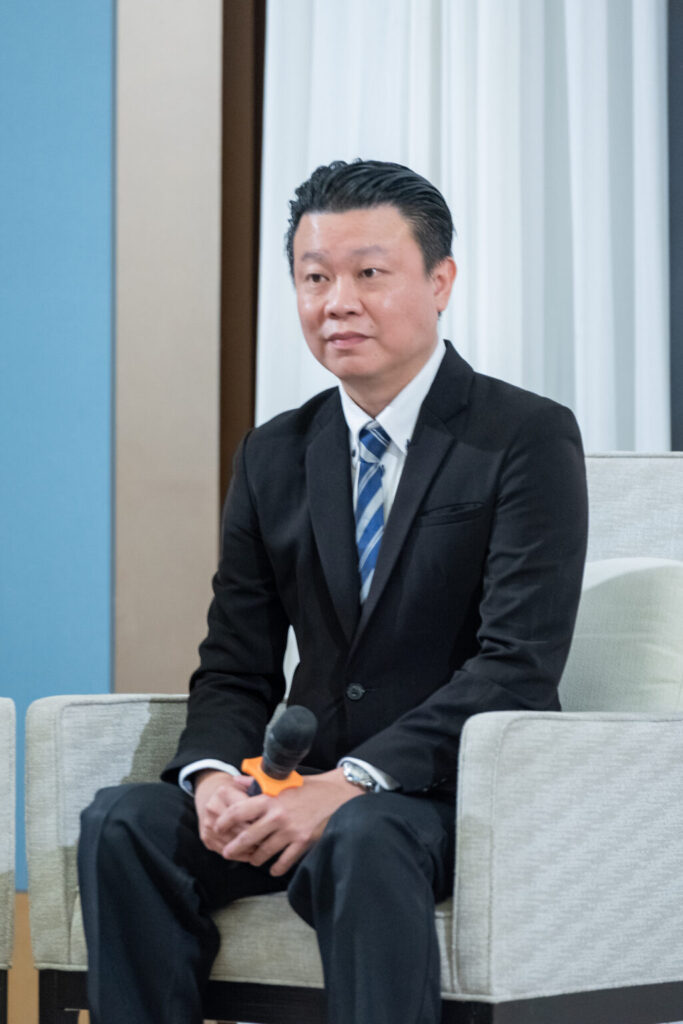

About TECE
The Thailand Center of Excellence for Electric Vehicles (TECE) was officially launched on June 26, 2024, and is operated under the National Science and Technology Development Agency (NSTDA). TECE’s vision is to drive Thailand’s electric vehicle (EV) industry through science, technology, and innovation, positioning the country as the largest EV hub in the Asia-Pacific region and achieving the national target of 30% zero-emission vehicle (ZEV) production by 2030.
TECE advances the development of Thailand’s EV industry through four key Driving Strategies:
🔘 EV-Innovation: Promoting research and development while strengthening the nation’s Quality Infrastructure (NQI).
🔘 EV-HRD: Developing skilled human resources for the EV industry, leveraging NSTDA’s expertise and its collaborative network.
🔘 EV-Connect: Linking support agencies and building an ecosystem conducive to nurturing Thai entrepreneurs.
🔘 EV-Transformation: Expanding technology applications, creating platforms that promote utilization, and supporting entrepreneurs across the EV value chain.
